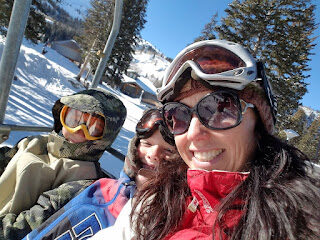Building on Life Experience

The excitement of school vacation doesn’t end just because students have return to school. From family trips to visiting relatives, students are filled with life experiences percolating in their mind. This excitement builds when they finally see their classmates and teacher with whom they want to share these experiences with.
Have you thought about ways you might build on student excitement and refocus their energy? Creating learning activities that build on life experiences and reinforces skills might be necessary before moving forward with new skills and standards.
Take a second grade class that has been working on writing addition and subtraction equations, they can practice this skill in the context of surveying classmates about activities they engaged in over winter break. While students are collecting data they also have an opportunity to share with their friends about their experiences. They can use this data to write addition and subtraction equations and create a word problem for other classmates to solve. As a whole class you can record all student responses into a larger graph for greater values. This activity reinforces test prep questions that often appear on the Smarter Balance where students need to read graphs and interpret information. You can bridge this activity across the curriculum by having students write a personal narrative, letter to a friend or journal entry about one activity they engaged in over break. Here is the activity and remediation strategies for Graphing Winter Activities.
As this activity was created using word it can be easily adapted for spring break or summer vacation. Furthermore teachers might use this with older kids to create a bigger sample size and collect data outside of their classroom. Rather than having pre-selected activities, older kids can create their own responses for the survey so that results represent multiple data sets.
What strategies are you using to build on life experiences and share students interests in your classroom?
Join our Facebook group discussion to share more ideas about making meaningful math connections




